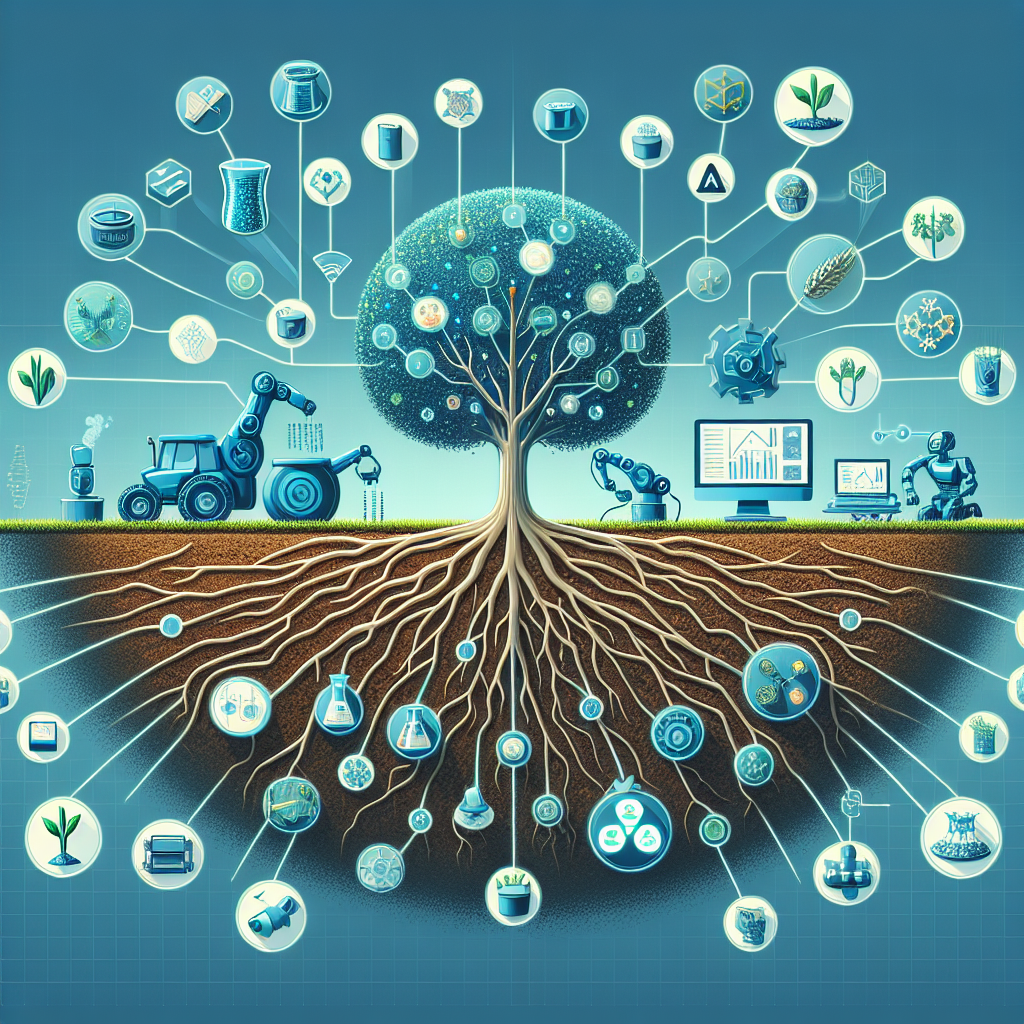In recent years, the use of Artificial Intelligence (AI) in agriculture has been on the rise, with a particular focus on agrochemical management. AI applications offer farmers the opportunity to optimize their use of agrochemicals, leading to increased productivity, reduced costs, and minimized environmental impact. This article will explore some of the key AI applications for agrochemical management in agriculture, as well as address some commonly asked questions about this emerging technology.
AI applications in agrochemical management can be broken down into three main categories: predictive analytics, precision farming, and autonomous systems.
Predictive analytics involves using AI algorithms to analyze large amounts of data, such as weather patterns, soil quality, and crop health, to predict when and where agrochemicals should be applied. For example, AI can analyze historical weather data to determine when a particular crop is likely to be susceptible to pests or diseases, allowing farmers to apply pesticides or fungicides preemptively. This can help to reduce the overall amount of agrochemicals used, as well as minimize the risk of crop damage.
Precision farming takes predictive analytics a step further by using AI to create detailed maps of a farm’s topography, soil composition, and crop health. This information can then be used to create customized treatment plans for each individual section of a field, ensuring that agrochemicals are applied only where and when they are needed. For example, AI-powered drones can be used to scan fields and identify areas of nutrient deficiencies, allowing farmers to apply fertilizers only to those specific areas. This not only reduces costs but also minimizes the environmental impact of agrochemicals.
Autonomous systems are perhaps the most cutting-edge AI application for agrochemical management in agriculture. These systems involve the use of AI-powered robots or drones to apply agrochemicals to crops with pinpoint accuracy. For example, a robot equipped with AI algorithms can navigate a field using GPS technology and apply pesticides or herbicides only to the targeted areas, avoiding areas where agrochemicals are not needed. This not only reduces waste but also minimizes human exposure to potentially harmful chemicals.
Overall, the use of AI applications for agrochemical management in agriculture offers a range of benefits, including increased productivity, reduced costs, and improved environmental sustainability. By leveraging the power of AI, farmers can make more informed decisions about when and where to apply agrochemicals, leading to healthier crops and higher yields.
FAQs:
Q: How does AI help farmers reduce the amount of agrochemicals used?
A: AI applications can analyze data to predict when and where agrochemicals should be applied, allowing farmers to target specific areas of a field that require treatment. This precision farming approach helps to reduce overall agrochemical usage while maintaining crop health.
Q: Are there any risks associated with using AI for agrochemical management?
A: As with any technology, there are potential risks associated with using AI for agrochemical management, such as data privacy concerns and the potential for algorithmic bias. It is important for farmers to work with reputable AI providers and ensure that proper safeguards are in place to protect sensitive data.
Q: How affordable is AI technology for small-scale farmers?
A: The cost of AI technology can vary depending on the specific application and the size of the farm. While initial investment costs may be high, the long-term benefits of using AI for agrochemical management, such as increased yields and reduced costs, can outweigh the upfront expenses.
Q: Can AI applications for agrochemical management be integrated with other farm management systems?
A: Yes, AI applications for agrochemical management can be integrated with other farm management systems, such as crop monitoring and irrigation systems. This integration allows farmers to create a comprehensive and efficient management strategy for their crops.
In conclusion, the use of AI applications for agrochemical management in agriculture has the potential to revolutionize the way farmers approach crop protection. By leveraging the power of AI algorithms, farmers can make more informed decisions about when and where to apply agrochemicals, leading to increased productivity, reduced costs, and improved environmental sustainability. As this technology continues to evolve, it is important for farmers to stay informed about the latest developments in AI applications for agrochemical management and explore how they can be integrated into their own farming practices.

